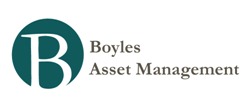Don’t Blink! The Hazards of Confidence - By Daniel Kahneman
We often interact with professionals who exercise their judgment with evident confidence, sometimes priding themselves on the power of their intuition. In a world rife with illusions of validity and skill, can we trust them? How do we distinguish the justified confidence of experts from the sincere overconfidence of professionals who do not know they are out of their depth? We can believe an expert who admits uncertainty but cannot take expressions of high confidence at face value. As I first learned on the obstacle field, people come up with coherent stories and confident predictions even when they know little or nothing. Overconfidence arises because people are often blind to their own blindness.
True intuitive expertise is learned from prolonged experience with good feedback on mistakes. You are probably an expert in guessing your spouse’s mood from one word on the telephone; chess players find a strong move in a single glance at a complex position; and true legends of instant diagnoses are common among physicians. To know whether you can trust a particular intuitive judgment, there are two questions you should ask: Is the environment in which the judgment is made sufficiently regular to enable predictions from the available evidence? The answer is yes for diagnosticians, no for stock pickers. Do the professionals have an adequate opportunity to learn the cues and the regularities? The answer here depends on the professionals’ experience and on the quality and speed with which they discover their mistakes. Anesthesiologists have a better chance to develop intuitions than radiologists do. Many of the professionals we encounter easily pass both tests, and their off-the-cuff judgments deserve to be taken seriously. In general, however, you should not take assertive and confident people at their own evaluation unless you have independent reason to believe that they know what they are talking about. Unfortunately, this advice is difficult to follow: overconfident professionals sincerely believe they have expertise, act as experts and look like experts. You will have to struggle to remind yourself that they may be in the grip of an illusion.
………………..
Related book: Thinking, Fast and Slow
Related link: The Marvels and the Flaws of Intuitive Thinking
- A Rule Of Intuition...
From Thinking, Fast and Slow: It is wrong to blame anyone for failing to forecast accurately in an unpredictable world. However, it seems fair to blame professionals for believing they can succeed in an impossible task. Claims for correct intuitions...
- The Quixotic Quest To Make Pundits Suck Less
Thanks to Sean for passing this along. “The average expert’s forecasts were revealed to be only slightly more accurate than random guessing—or, to put more harshly, only a bit better than the proverbial dart-throwing chimpanzee. And the average...
- Ray Dalio Quote
“The type of thinking that is necessary to succeed in the markets is entirely different from the type of thinking that is required to succeed in school….Most school education is a matter of following instructions—remember this; give it back; did...
- Chuck Akre On Judgment In Investing
Via Market Folly (visit Market Folly for more notes from the Value Investing Congress): The following notes are courtesy of Kyle Mowery from GrizzlyRock Capital. Akre quoted Will Rodgers: "Good judgment comes from experience and experience comes...
- Gary Klein On Insight
Found via Simoleon Sense. What's the tradeoff between people using their experience (people using the knowledge they've gained, and the expertise that they've developed), versus being able to just follow steps and procedures? We know from...

